Skills2Alive
Adolescents and young people face unemployment, leading to mental health issues, exposure to diseases, and prostitution due to a lack of economic opportunities. REPSSI’s Skills2Live Project intervened by offering vocational training, psychosocial support, and sexual health education. Implemented in 2018 in Mozambique and Zimbabwe, in collaboration with partners such as Young Africa, Oasis, and Kugarisikka, the project empowered beneficiaries with skills and knowledge to improve economic resilience, reducing vulnerability. The initiative had a lasting impact, enhancing youth livelihoods and mental health outcomes.
OUR PROGRAMMING
The REPSSI’s Skills2Live Project aimed to empower adolescents and young people by enhancing economic resilience through vocational training and psychosocial support. Focused on those living with or at risk of HIV, the project's goal was to provide essential skills and knowledge. Implemented from 2018 to 2020, it successfully improved beneficiaries' livelihoods, mental health, and access to health services before concluding.

PROJECT APPROACH

The REPSSI’s Skills2Live Project aimed to empower adolescents and young people by enhancing economic resilience through vocational training and psychosocial support. Focused on those living with or at risk of HIV, the project's goal was to provide essential skills and knowledge. Implemented from 2018 to 2020, it successfully improved beneficiaries' livelihoods, mental health, and access to health services before concluding.
REPSSI Mozambique delivered comprehensive capacity-building training aimed at empowering young people and Community Adolescent Treatment Supporters (CATS). The training focused on vocational skills, psychosocial support, and Sexual Reproductive Health Rights (SRHR). Young Africa trainers received specialized training to integrate SRHR into their teaching, ensuring a holistic learning experience. CATS were trained to provide counseling, referrals, and mental health support in wellness spaces. This approach strengthened the capacities of both trainers and youth, fostering economic resilience and improved mental well-being.
The Skills2Live Projec intervention provided vocational training, psychosocial support, and health services to adolescents and young people, particularly those living with or at risk of HIV. By establishing wellness centers, beneficiaries received comprehensive Sexual Reproductive Health Rights (SRHR) education and mental health support.
The participants reported enhanced life skills, improved mental health and increased employability. Many beneficiaries gained confidence in seeking health services, leading to better overall well-being. Ultimately, the project fostered economic independence and resilience, enabling young people to pursue healthier futures and reduce vulnerability to exploitation.
During the Skills2Live Project, REPSSI focused on advocacy to enhance knowledge and access to comprehensive Sexual Reproductive Health Rights (SRHR) and HIV services for adolescents and young people. By training Community Adolescent Treatment Supporters (CATS) and health providers, the project fostered understanding and encouraged proactive health-seeking behaviors.
Implementing partners have reported that the aforementioned intervention has led to increased HIV testing and treatment adherence, reduced stigma, and empowered youth to take control of their sexual health, creating a supportive environment for improved health outcomes.
The Skills2Live Project significantly impacted adolescents and young people, particularly those living with or at risk of HIV. Beneficiaries gained increased knowledge of Sexual Reproductive Health Rights (SRHR) and improved access to HIV services, alongside vocational training that enhanced their employability.
As REPSSI implements this project, key learnings have emerged, emphasizing the need for designing economic livelihood support intervention with a holistic support approach, community engagement, adaptability, and empowerment through. Educating youth about their rights and available health services has promoted self-advocacy, reduced stigma, and demonstrated that informed individuals are more likely to seek help and support.
